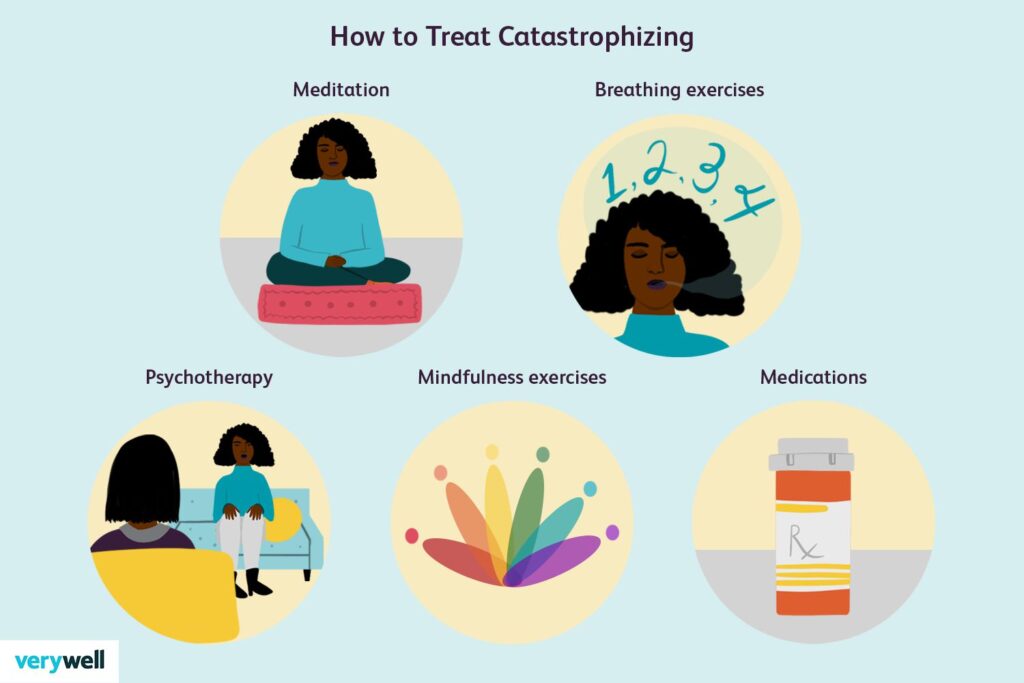
In today’s fast-paced and demanding world, it is not uncommon for anxiety to creep into our lives, leaving us feeling overwhelmed and paralyzed. Anxiety attacks can strike at any moment, making it crucial to have effective tools to manage them. One such powerful tool that has been gaining momentum in recent years is mindfulness techniques. One of the effective anxiety treatment Spokane is the use of mindfulness techniques. Mindfulness involves paying attention to the present moment and taking a non-judgmental approach to whatever thoughts, feelings, or sensations arise. Derived from ancient Eastern practices, mindfulness offers a path to inner peace and tranquility by shifting our attention to the present moment. In this article, we will explore how mindfulness techniques can be a game-changer when it comes to managing anxiety attacks and regaining control over our minds and bodies.
Understanding the impact of anxiety attacks
Understanding the impact of anxiety attacks goes beyond simply recognizing the physical symptoms – rapid heartbeat, shortness of breath, and an overwhelming sense of fear. Anxiety attacks can have a profound effect on one’s mental and emotional well-being. They can leave individuals feeling helpless, trapped in a cycle of worry and anticipation for when the next attack will strike. The constant adrenaline rush that accompanies anxiety attacks can lead to chronic stress, leading to negative impacts on overall health.
Moreover, anxiety attacks can limit an individual’s ability to navigate daily life effectively. Simple tasks such as grocery shopping or attending social events become daunting challenges that trigger intense feelings of panic. This interference with normal functioning has significant implications for personal relationships and professional productivity. Individuals may isolate themselves from loved ones to avoid triggering situations or find it increasingly difficult to concentrate at work, affecting their performance and self-confidence.
How does mindfulness help with anxiety attacks?
When it comes to managing anxiety attacks, mindfulness techniques can be a powerful tool. By helping individuals stay anchored in the present moment and cultivating an attitude of non-judgmental awareness, mindfulness can help break the cycle of anxious thoughts and physical sensations that often accompany anxiety attacks. One way mindfulness helps is by allowing people to observe their thoughts and emotions without getting caught up in them. Rather than engaging with anxious thoughts or trying to push them away, individuals can practice acknowledging them with acceptance and letting them pass through their minds like clouds drifting across the sky.
Another way mindfulness aids in managing anxiety attacks is by promoting deep relaxation. During an attack, the body becomes tense and on high alert, which only exacerbates feelings of panic and fear. Through practices such as deep breathing exercises or body scans, individuals practicing mindfulness can bring their attention back to sensations in their bodies rather than being consumed by worry or fear. This shift from fixation on anxious thoughts to bodily sensations promotes a sense of calmness and groundedness, reducing the intensity of an anxiety attack.
Mindfulness techniques for managing anxiety attacks
When it comes to managing anxiety attacks, practicing mindfulness techniques can be a powerful tool. One technique that can be particularly effective is deep breathing. During an anxiety attack, our breath often becomes shallow and rapid, intensifying our feelings of panic. By consciously slowing down our breath and taking deep inhales and exhales, we activate the body’s relaxation response and calm the nervous system.
Another helpful mindfulness technique for managing anxiety attacks is grounding yourself in the present moment. Anxiety often causes us to become fixated on past events or worried about future scenarios that may never happen. In these moments, it is important to bring your awareness back to the here and now. Engage your senses by noticing the sights, sounds, smells, tastes, and sensations around you. This can shift your focus away from anxious thoughts and redirect it towards what is happening in the present moment.
Body scan meditation for grounding and relaxation
One powerful mindfulness technique for managing anxiety attacks is the body scan meditation. This practice involves systematically focusing your attention on different parts of your body, starting either from the top of your head or the soles of your feet, and moving slowly through each area. The purpose is to cultivate awareness of bodily sensations, release tension, and ground yourself in the present moment.
During a body scan meditation, it can be fascinating to observe how various regions of your body may hold different levels of tension or discomfort. By bringing mindful attention to these areas, you allow yourself to acknowledge any sensations that arise without judgment. This non-judgmental awareness helps break the cycle of anxious thoughts and invites relaxation into those areas. Furthermore, by paying close attention to specific parts of your body during a scan, you may discover hidden layers of stress or emotions that are wanting to be acknowledged. Sometimes, tension in certain areas can be a signifier for underlying emotional states. By exploring these connections through the practice of a body scan meditation regularly, you can develop deeper self-awareness and gain insights into what triggers anxiety in you personally. Seeking help in depression through various avenues such as medication, therapy, and incorporating mindfulness practices into your routine can lead you towards healing and renewal. Remember that everyone’s journey towards recovery is unique; what works for one person may not work for another.
Conclusion: Harnessing the power of mindfulness for anxiety relief.
In conclusion, harnessing the power of mindfulness for anxiety relief holds immense potential for transforming our lives. By cultivating a non-judgmental awareness of our thoughts, emotions, and physical sensations, we can create space to respond mindfully rather than react impulsively during anxious moments. Mindfulness allows us to observe anxiety without becoming overwhelmed by it, granting us the freedom to choose how we want to navigate through challenging situations.
Moreover, studies have consistently shown that practicing mindfulness leads to a reduction in overall anxiety levels. This is because mindfulness helps regulate our stress response by activating the prefrontal cortex, which is responsible for reasoning and decision-making. By training ourselves to focus on the present moment instead of getting caught up in worries about the past or future, we can interrupt the cycle of anxiety and cultivate a sense of calm and clarity.
ALSO READ / authorities investigating two violent attacks on link light rail





